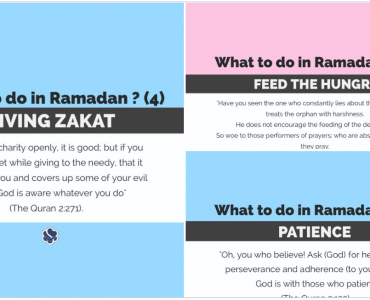The term “safka” stands for the hitting of the hand with hand. Parts in a contract would perform this action when the contract was completed to demonstrate that they had agreed[1]. The Messenger of Allah prohibited the inclusion of two “safkas” in one “safka”[2]. This stands for the prohibition of two contracts included in a single one. According to what has been reported by Abu Hureyra, the Messenger of Allah has prohibited the inclusion of two sales in a single one[3] and has commanded: “Whoever performs two sales in a single one, he either decreases the price or otherwise he commits usury.”[4]
One day the “ummu veled”[5] of Zayd b. Erkam said to Aisha, “O mother of believers! I sold to Zayd a slave for 800 units in trust to the time of “ata”[6] He needed the money so I bought the slave for 700 units. Aisha said: “What an evil sale and what an evil purchase have you done! Warn Zayd that if he does not repent the jihad he did with the Messenger of Allah will be canceled. Upon these words the woman asked, “Is it good enough, if the purchase is withdrawn and I take back my 700 units?” “Sure it is!” she said and reminded the following verse:
“…To whomever an admonition from his Lord comes and he ceases usury, what has passed is his; his situation is in the hands of Allah.” (The Cow/ Bakara 2 / 275)[7]
The hadiths provided above together with the attitude of our mother Aisha demonstrate that the prohibition of including two “safkas” in one “safka” is in fact the prohibition of hiding interest-providing debt behind the image of trading. If Zayd b. Erkam purchases a slave for 800 units in trust and sells it for 700 units in cash, it means that he doesn’t really need the slave. From this perspective the seller: “…either decreases the price, otherwise he commits usury.”[8] As Zayd b. Erkam has been indebted with the higher amount, our mother Aisha is right to regard him as the one who committed usury.
Nowadays transactions of this type are quite common among people. For instance, someone who needs cash money purchases an automobile for 11.000 units to be paid in 6 months. He sells the car for 10.000 units in cash to the automobile gallery owner. Thus he has been indebted 11.000 units for 10.000 units he got in cash. According to the holy hadith the gallery owner has to get 10.000 units or he will be regarded to have committed usury. This is also called “eyne sale” (بيع العينة). Another hadith of the Messenger of Allah in relation to this issue is as following:
“If you undertake eyne sale, get attached to the tail of the ox, confine yourselves with agriculture, and abandon your jihad, Allah releases baseness upon you and does not take it back till you return to your religion”[9]
By commenting this hadith diversely Islamic jurisprudence scholars have not only narrowed trade transaction sphere but have also opened a door for usury. Those who have entered this door have violated the usury prohibition by preferring “muamele-i sher’iyye” and “ribh-i sher’i” sale methods and have established foundations that provide interest-bearing loans. This subject will be discussed in the “Muamele-i sher’iyye” and “Money Foundations” sections. On the other hand, the diverse commentaries of the hadith on the sale contracts which include two sales will be covered in “Maturity Period Difference and Usury” chapter.
[1]Ahmad b. Hanbal, Müsned, 1 / 398.
[2] Mecellei –ahkam-i adliyye 30th Issue
[3] Tirmizi, Sunan, large ‘bab 18, hadith no 1231; Tirmizi’ye Hasen, and according to this hadith is authentic. Abdullah b. Amr, Ibn Omar and Ibn narrated on this matter and Mes’ud’un There. Ibn Omar narrated, the large ‘bab 68, hadith no 1309’dadır. Nesa, Sunan, Growth ‘, bab 73, hadith no 4632; Ahmed b. Hanbal, Müsned, II/71, 174, 175, 177, 179, 205 Beyhakî, es-Sünenu’l-kubra, hadith no 10660th, 10661 (Abu Hureyre’den) 10662 (Abdullah b. Amr legend); 11172 (Ibn Omar narrated)
[4] Abu Dawud, Sunan, large ‘bab 55, hadith no 3461, Muhammad b. Hibban (d. 354 h.) Sahih Ibn Hibban, Beirut 1993/1414, second edition, Shoaib elArnaut verify with c. 11, p. 348; Ahmad b. elHuseyn elBeyhakî (384/458 h.), Sünenu’l – Beyhakî el-Kubra, Mecca, 1994/1414, Investigation, Abdulkadir Mohammed Ata, No 1992/1413 registration Beyhakî 10661st riba, Beirut, c. 5, p. 343; Muhammad b. Abdullah elNeysâbûrî (321/405 h) el Müstedrek ale’s-sahihayn, Investigation, Mohammed Abdulkadir Ata, Hadith no 2292, Beirut 1990/1411.
[5] “Ummu Velde” is the slave wife –concubine- who has given children to her owner and cannot be sold gaining freedom after her owner’s death
[6] Ata (العطاء), was founded by Caliph Omar in court organization once a year from the spoils means the money is distributed. (Mustafa Fayda, “Ata”, article of Turkey Religious Islamic Encyclopedia Foundation, Istanbul c. IV, 1991.)
[7] Ibn Rushdie, Muhammad b. Ahmad b. Rushdie elKurtubî, Bidâyet’ül-müctehid and nihâyet’ül – muktesid, Egypt, c. II, p. 123124.
[8] Abu Dawud, Sunan, large ‘bab 55, hadith no 3461, Muhammad b. Hibban (d. 354 h.) Sahih Ibn Hibban, Beirut 1993/1414, second edition, Shoaib elArnaut verify with c. 11, p. 348; Ahmad b. elHuseyn elBeyhakî (384/458 h.), Sünenu’l – Beyhakî el-Kubra, Mecca, 1994/1414, Investigation, Abdulkadir Mohammed Ata, No 1992/1413 registration Beyhakî 10661st riba, Beirut, c. 5, p. 343; Muhammad b. Abdullah
elNeysâbûrî (321/405 h) el-Müstedrek ale’s-sahihayn, Investigation, Mohammed
Abdulkadir Ata, Hadith no 2292, Beirut 1990/1411.
[9] Abu Dawud, Sunan, large ‘bab 56, hadith no 3462, Ahmed b. Hanbal, Müsned, 2 / 84; Zeylan, Nasbur-Ra, Cairo, 1357, c. 4, p. 1617, In this book of hadith tahrici made to be precise and the sika’dan where rical has been found.







Add comment